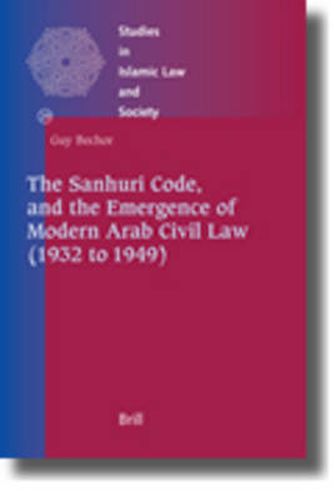Readings Newsletter
Become a Readings Member to make your shopping experience even easier.
Sign in or sign up for free!
You’re not far away from qualifying for FREE standard shipping within Australia
You’ve qualified for FREE standard shipping within Australia
The cart is loading…






Dr. ‘Abd al-Razzaq al-Sanhuri (1895-1971) is one of the most prominent jurists to emerge to date in the Arab world. His alarm at the growing social gap in his country, Egypt, during the first half of the twentieth century, fueled his vision of establishing moral social order by means of a new civil code. Although Sanhuri’s chosen tool was the legal text, this book argues that his vision was essentially a social one: to introduce the principles of compassion, solidarity and fairness, alongside progress and pragmatism, into polarized Egyptian society, whereby property laws acquired a social function, the laws of partnership were perceived as having an educational value, and contract law was activated as a balance favoring the weaker members of society. Accordingly, this book examines the drafting of the Egyptian Civil Code, exposing the hitherto unknown sociological strata of this act of legislation.
$9.00 standard shipping within Australia
FREE standard shipping within Australia for orders over $100.00
Express & International shipping calculated at checkout
Dr. ‘Abd al-Razzaq al-Sanhuri (1895-1971) is one of the most prominent jurists to emerge to date in the Arab world. His alarm at the growing social gap in his country, Egypt, during the first half of the twentieth century, fueled his vision of establishing moral social order by means of a new civil code. Although Sanhuri’s chosen tool was the legal text, this book argues that his vision was essentially a social one: to introduce the principles of compassion, solidarity and fairness, alongside progress and pragmatism, into polarized Egyptian society, whereby property laws acquired a social function, the laws of partnership were perceived as having an educational value, and contract law was activated as a balance favoring the weaker members of society. Accordingly, this book examines the drafting of the Egyptian Civil Code, exposing the hitherto unknown sociological strata of this act of legislation.